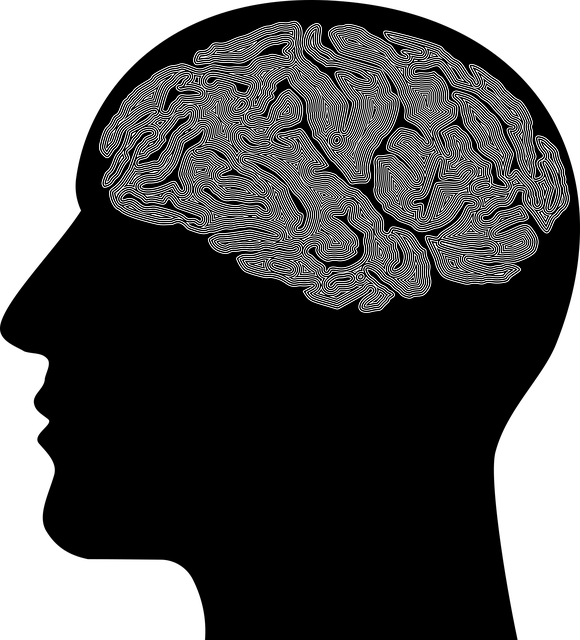Boulder Exposure and Response Prevention (BERP) Therapy is an innovative, effective approach to anxiety disorder treatment, combining imagination exercises with gradual real-life exposure. In group settings, BERP, alongside CBT techniques, creates a supportive environment for learning and connection. This method fosters community healing, boosts self-confidence, and enhances emotional understanding through interactive activities and open dialogue. A safe, therapeutic atmosphere, crucial for mental wellness groups, is maintained through empathy-building strategies and burnout prevention for facilitators. Success is tracked through regular check-ins, revealing improvements in mental wellness, emotional regulation, and collective progress, shaping dynamic group therapy sessions.
Mental wellness group facilitation plays a pivotal role in fostering community and support, especially through innovative approaches like Boulder Exposure and Response Prevention (BERP) Therapy. This article delves into effective techniques for group leaders, exploring how structured interactions can enhance mental health outcomes. We’ll cover understanding BERP, the unique role of facilitators, creating safe spaces, tracking progress, and measuring success. By employing these strategies, facilitators empower individuals to confront and manage challenges collaboratively.
- Understanding Boulder Exposure and Response Prevention Therapy (BERP)
- Group Facilitation Role in Mental Health Support
- Techniques to Foster Safe and Therapeutic Environments
- Measuring Success and Group Progress Tracking
Understanding Boulder Exposure and Response Prevention Therapy (BERP)

Boulder Exposure and Response Prevention (BERP) Therapy is an innovative approach to treating anxiety disorders by gradually exposing individuals to feared situations or objects in a safe, controlled environment. This technique aims to help clients face their fears directly, preventing avoidance behaviours that typically reinforce anxiety. During a BERP session, facilitators guide participants through a series of steps, starting with imagination and visualisation exercises to build mental resilience. As comfort levels increase, real-life exposure becomes possible, allowing individuals to confront their triggers without resorting to avoidance strategies or safety behaviours.
BERP is particularly effective for those seeking Self-Esteem Improvement, as it empowers them to manage and reduce anxiety symptoms. By facing and overcoming fears, individuals can experience significant Anxiety Relief and enhance their overall Mental Wellness. This therapy fosters a sense of control and confidence, enabling clients to navigate challenging situations with newfound courage and a fresh perspective.
Group Facilitation Role in Mental Health Support

In mental health support, group facilitation plays a pivotal role in creating a safe and supportive environment where individuals can connect, share experiences, and learn from one another. This dynamic approach to therapy goes beyond traditional one-on-one sessions by fostering community and collective healing. Techniques such as Exposure and Response Prevention (ERP), often used in conjunction with Cognitive Behavioral Therapy (CBT), are effectively facilitated in group settings. By exposing individuals to feared stimuli in a controlled manner, ERP helps them learn to manage their responses, ultimately reducing anxiety and promoting emotional well-being.
The facilitator’s role is crucial in guiding the group through discussions, leading self-awareness exercises, and introducing various techniques for anxiety relief. They ensure that every member feels heard and respected while encouraging active participation. Through interactive activities and open dialogue, facilitators help participants develop new coping strategies, enhance their self-confidence, and cultivate a deeper understanding of their emotional responses. This collective process not only benefits the group as a whole but also equips individuals with valuable tools for ongoing mental wellness management.
Techniques to Foster Safe and Therapeutic Environments

Creating a safe and therapeutic environment is paramount when facilitating mental wellness groups. One effective technique proven to strengthen group dynamics is Boulder Exposure and Response Prevention (BERP) Therapy, which encourages participants to confront fears in a supportive setting, fostering resilience and coping mechanisms. By gradually exposing individuals to stressors and preventing avoidance behaviors, BERP helps normalize experiences and reduces the power of anxious or traumatic memories.
Complementing this approach are Empathy Building Strategies that encourage active listening and understanding among group members. This not only strengthens bonds but also provides a platform for sharing experiences and offering support. Additionally, incorporating Burnout Prevention Strategies for Healthcare Providers can help ensure facilitators maintain their well-being, thereby enhancing the overall quality of group interactions. Stress Management Workshops Organization within these sessions further reinforces healthy coping mechanisms, ultimately contributing to a more positive and effective therapeutic environment.
Measuring Success and Group Progress Tracking

Measuring success and tracking group progress are vital components of effective mental wellness facilitation. In the context of Boulder Exposure and Response Prevention Therapy (BERT), facilitators must assess how individuals within the group are managing their emotional responses to challenging situations. This involves observing participants’ ability to apply learned coping strategies, such as reframing negative thoughts or engaging in positive self-talk, during therapy sessions and beyond. Regular check-ins, both formal and informal, allow for real-time adjustments to the therapeutic approach, ensuring that each member of the group receives tailored support.
By tracking progress, facilitators can identify individual and collective improvements in mental wellness, emotional regulation, and burnout prevention. This data informs future sessions, fostering a dynamic and responsive environment. Moreover, it helps participants recognize their personal growth and reinforces the value of group therapy as an effective tool for enhancing overall well-being.
Boulder Exposure and Response Prevention (BERP) therapy, combined with effective group facilitation techniques, offers a powerful approach to mental wellness support. By creating safe spaces and employing strategies to track progress, facilitators can significantly enhance the therapeutic experience for group members. These methods not only foster open communication but also promote personal growth and resilience. Incorporating BERP into group settings allows individuals to confront and manage their fears, ultimately contributing to improved mental health outcomes.













